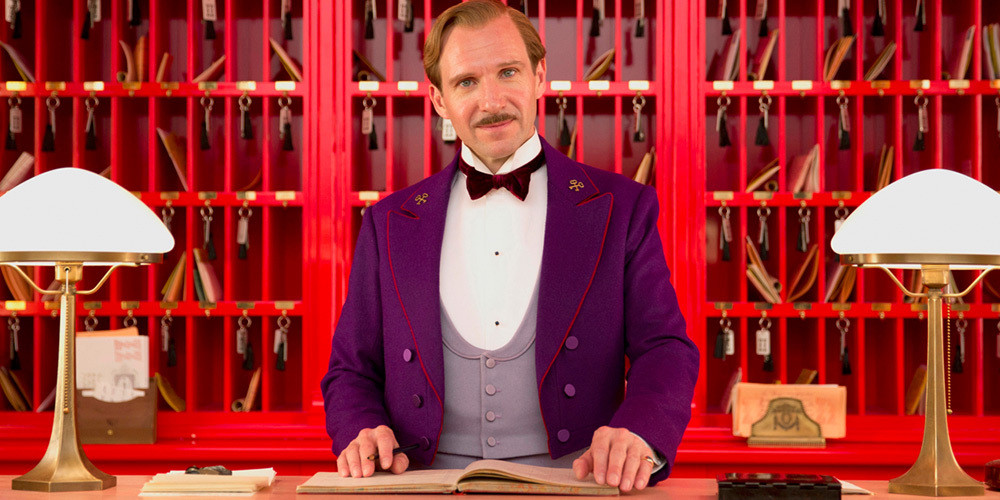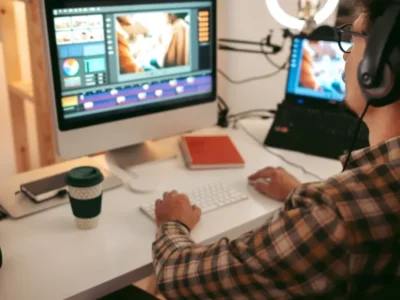Dear future directors, cinematographers, or film enthusiasts in general, in this article, we will roll into the world of film composition and framing in film. Have you ever wondered, why you feel a certain way after watching a great movie? Have you ever wondered why directors like Wes Anderson have their own style and feel in their moving pictures? Well, in this article you will get answers to these questions and explain the importance of composition in film.
“THE MOST HONEST FORM OF FILMMAKING IS TO MAKE A FILM FOR YOURSELF”
– Peter Jackson

Why Film Composition Rules for Filmmakers
A creative language has been here for years. We are used to communicate and understand certain feelings better if the frame is familiar to us.
Picture this: You’re chilling in a jam-packed theater, eyes glued to the screen, heart pumping with excitement. As the camera pans across the epic landscape and zooms in on the hero, you’re sucked into the action, totally immersed in the story unfolding before you. That, my friend, is the power of composition in film. For filmmakers, nailing the art of composition isn’t just about making pretty pictures—it’s about crafting immersive cinematic experiences that leave audiences shook. By arranging elements within the frame with precision, from characters to props to background details, filmmakers can control where the audience’s focus goes, stir up emotions, and take their storytelling game to a whole new level. It’s like painting a masterpiece on the big screen, with every stroke adding to the overall vibe of the film.
Cinematography 101: Getting the Lowdown
If you’re just starting out on your filmmaking journey, getting the basics of cinematography down is like leveling up your game to boss status. Understanding stuff like framing, composition, and camera moves lays the groundwork for creating killer scenes that grab attention and keep folks glued to their seats.By wrapping your head around the fundamentals of cinematography, rookies get the tools they need to bring their creative visions to life on the silver screen. Whether it’s mastering the rule of thirds, playing around with shot sizes and angles, or messing with light and shadow to add some drama, knowing your stuff when it comes to cinematography basics is essential for making waves in the industry.
Film Composition Examples
Within this FREE PDF, you will discover:
- film composition examples in movies
- how filmmakers employ composition techniques
- how to create unforgettable cinematic experiences

Film Composition: The Director’s Signature Move
In the cutthroat world of filmmaking, a director’s signature style is like their secret sauce—distinctive, unforgettable, and totally badass. And when it comes to leaving their mark on the big screen, top-notch directors use composition as their calling card, stamping each frame with their unique vibe and creative flair. Take a look at the one and only Wes Anderson, whose quirky compositions and vibrant visuals are as iconic as they come. From the meticulously arranged symmetry of “The Grand Budapest Hotel” to the whimsical framing of “Moonrise Kingdom,” Anderson’s films are a feast for the eyes, with every shot bursting with personality and charm. By harnessing the power of composition, Anderson crafts cinematic worlds that are unmistakably his own—a testament to why having an eye for detail is key.
Importance of Composition in Film Conclusion
So, there you have it—the importance of composition in film isn’t just another box to tick on the filmmaking checklist. It’s the secret sauce that elevates a good film to greatness, giving filmmakers the tools they need to captivate audiences and leave a lasting impression. Whether you’re a newbie just dipping your toes into the world of cinematography or a seasoned pro looking to up your game, mastering the art of composition is the ultimate power move in the ever-evolving world of filmmaking.
Here you will find some film composition examples.
Now, go ahead, embrace your inner director, and start crafting cinematic masterpieces that’ll have folks talking long after the credits roll. With the right composition skills in your toolkit, the sky’s the limit for your filmmaking dreams.
Film Composition Examples
Within this FREE PDF, you will discover:
- film composition examples in movies
- how filmmakers employ composition techniques
- how to create unforgettable cinematic experiences

Explore related content

Video Editing Tips CapCut: Tips, Tricks, and Techniques
Video editing is an art, and there are proper tools and techniques, through them everybody… Read More »Video Editing Tips CapCut: Tips, Tricks, and Techniques

Factors to Consider Before Buying a Video Editing Computer
From helping grow your brand and business to editing just for fun with the love… Read More »Factors to Consider Before Buying a Video Editing Computer

Best Video Editing Monitors in 2024
In the evolving world of video production, the importance of a high-quality monitor cannot be… Read More »Best Video Editing Monitors in 2024